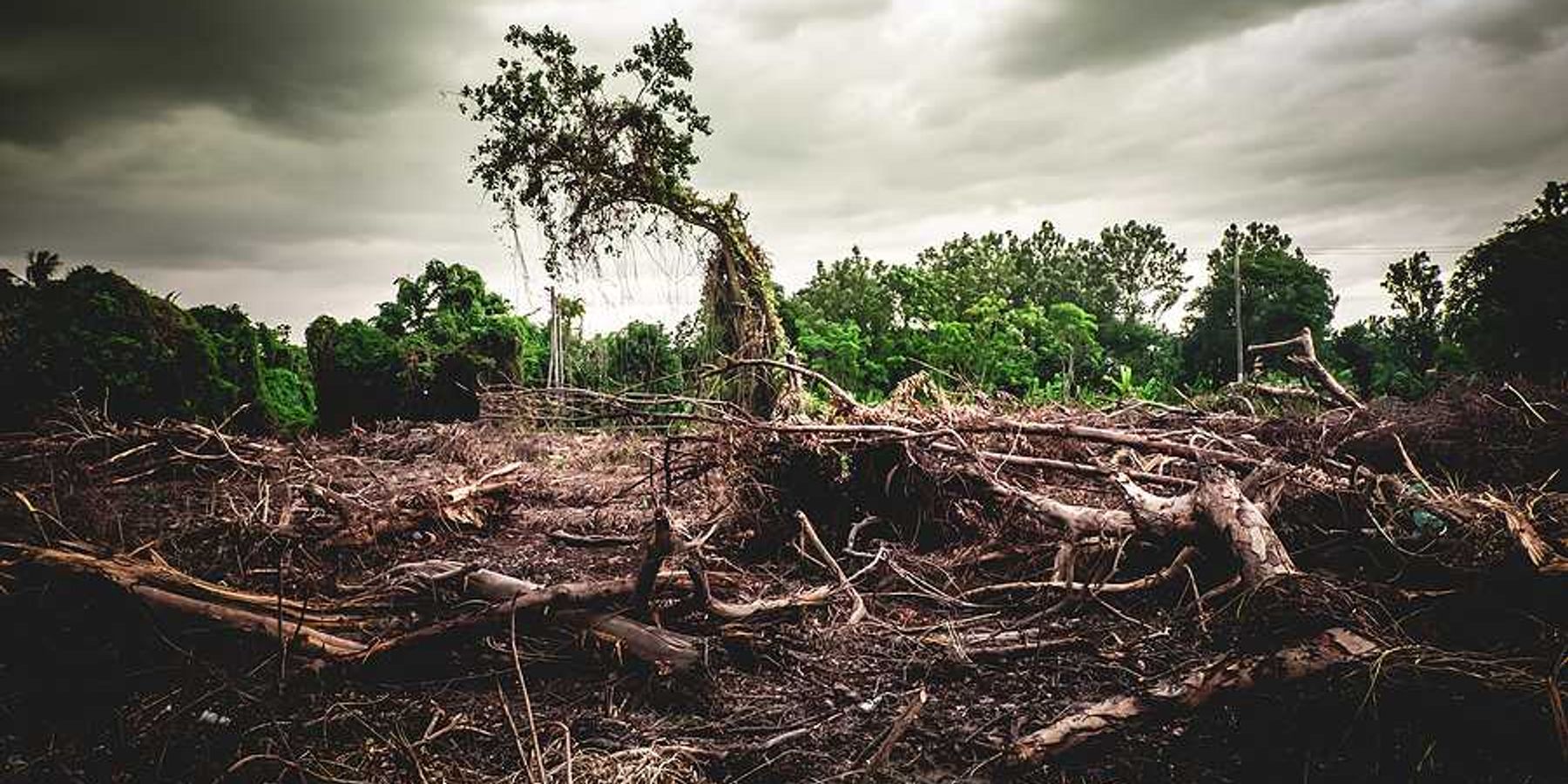Peter Dykstra: Greenwashing’s medieval age
Old school greenwashers and deniers with staying power.
Last week I went on an archaeological dig to uncover ancient greenwashers and deniers. This week, I present five more that persist to this very day.
Heartland Institute
Chicago-based Heartland may be best-known for three things: Its annual conference bringing together climate deniers from around the world; and two colossal embarrassments within a few months of each other in 2012 that briefly seemed to threaten Heartland’s existence.
In February of that year, scientist Peter Gleick, a Heartland foe, obtained internal documents that showed deep cynicism in the group’s efforts to raise money and provide biased climate information to schoolkids. Gleick did so by impersonating a Heartland board member. He endured sanction and criticism (including, for what it's worth, from me), and apologized, returning to his work at the Pacific Institute a few months later. But Heartland remained wounded by the disclosures.
Then in May 2012, Heartland stepped in a large pile of its own hubris. Electronic billboards briefly appeared on Chicago freeways likening advocates for action on climate change to murderous villains like the Unabomber and Osama bin Laden. The uproar was immense and immediate. The billboards disappeared. So did some of Heartland’s support.
A bit more chaste, Heartland survived. The deniers’ conference, which I like to call “Deny-a-Palooza,” continues today.
Ketchum and other “mainstream” PR firms
I had some direct experience with Ketchum, an international PR firm that sometimes worked for industries with bad environmental reputations. In 1991, shortly before I left Greenpeace, the group received an over-the-transom copy of a “crisis PR” plan drawn up by Ketchum for Clorox, the chlorine bleach retailer. The plan detailed making legal threats against both Greenpeace and “green reporters” who raised questions about chlorine’s safety and other dubious tactics. The punchline? Clorox had never been a Greenpeace target — until its PR firm’s counterattack strategy got loose.
Public disclosures like the Ketchum example are rare. Industry defenses against adverse science, or journalism, or advocacy, are clandestine. But they’re there. Two examples in recent years involve journalists in high places hired away by industries eager to paint themselves as sincere.
Edelman Worldwide snagged Dina Cappiello, a respected reporter for the AP and other news organizations, in 2015. Edelman has at best a spotty reputation for hiring out to dirty industries, but there is no evidence that Cappiello focused on those accounts. Two years ago, she took a job with the Rocky Mountain Institute, the visionary clean energy group founded by Amory and Hunter Lovins.
Matt Wald, a longtime New York Times reporter whose reporting on nuclear energy sometimes drew criticism from anti-nuclear advocates, took a job with the Nuclear Energy Institute in 2015. He remained there for six years.Center for Organizational Research and Education (CORE)
Even many of those who follow greenwashing and denialism are familiar with CORE. They’re the newly christened front group for lawyer Rick Berman, who has invented more than a dozen other groups to stage guerilla media attacks on environmental, consumer, labor, animal rights, and safety organizations — even MADD, Mothers Against Drunk Driving (!). The Distilled Spirits Council viewed grieving moms as a threat, apparently.
Berman’s below-the-radar anti-environmental work has come to light multiple times, including this 2014 New York Times exposé.
Berman’s “Big Green Radicals” attempts to cast mainstream environmental groups like the Sierra Club and NRDC as tyrants bigfooting the meek, like ExxonMobil and Chevron-Texaco.
Thirty-five years after founding Berman and Company. Rick Berman doesn’t appear to be slowing down at age 80. And as society copes with longtime threats like smoking, obesity, and climate change and faces down newer ones like plastic pollution and PFAS chemicals, he won’t lack for clients.
The bull moose of climate bull sh*t
In 1992, Marc Morano signed on as a young reporter-producer for arch-conservative Rush Limbaugh’s syndicated radio show. By 2004, he worked for the Cybercast News Service, where he did untold damage to Democrat John Kerry’s presidential campaign by reporting never-proven allegations that Kerry’s Vietnam service record was falsified. In the 2000’s he threw in full-time with climate denial on Senator Jim Inhofe’s staff, directing a relentless stream of anti-science propaganda.
In 2009, he jumped to the Committee for a Constructive Tomorrow (CFACT), where he edits ClimateDepot.com. Later that year, another scoop fell into his lap when 10,000 emails between climate scientists fell into his lap just before the crucial 2009 UN Climate Conference. The selective release of just a few of those thousand emails suggested that scientists were pulling the wool over the eyes of the world with a climate “scam.”
Multiple investigations turned up zero evidence of any such scam, but that hasn’t stopped “ClimateGate” from being portrayed as a corrupt scandal nearly 13 years later.
CFACT continues to be a go-to source for far-right media and politicians. Morano effortlessly reaches back into the McCarthy Red Scare mania of the 1950’s to link scientists to a vast, unseen cabal to sink the global economy. In recent years he’s been written off by anyone to the left of Fox News.
According to ProPublica’s scan of 2020 IRS filings under nonprofits’ Form 990, Morano pulled down a base salary of $182,000 that year. Not bad for a movement that likes to accuse climate scientists of only being in it for the money.Pat Moore, from Greenpeace to Greenwash
Another one I have a direct connection to: Patrick Moore, a young Ph.D. who joined Greenpeace shortly after its founding, became a leader of the Vancouver-based group in the mid-1970’s.
As Greenpeace grew worldwide near the end of the decade, internal warfare broke out between the original group and its prosperous chapter in San Francisco. A truce engineered by other Greenpeace entities in Europe brought stability to the organization worldwide, but left Moore far away from its leadership. He left Greenpeace in 1986, announcing it had strayed from its original missions.
Within a few years, Pat Moore had hired out to all manner of Greenpeace opponents: Timber, aquaculture, nuclear power, polyvinyl chloride chemicals, and more. His turnabout was an irresistible media lure, and through his group Ecosense remains so today.
At one brief point in 2017, the Nuclear Energy Institute used Moore to tout nuke power as a “carbon free” menace to climate change while Canada’s fossil fuel energy deployed him as a spokesman to cast doubt that climate change was real.
Pat Moore’s early work for the British Columbia timber industry provided what I think is the all-time greenwashing line: “A clearcut is a temporary meadow.”
There are plenty more lucrative efforts finding eager audiences to push, for example, plastics recycling as cure-all for what we’re discovering is a massive and growing problem.
Common sense and mounting scientific evidence can be weak weapons against slick and well-funded B.S.
Peter Dykstra is our weekend editor and columnist. His views do not necessarily represent those of Environmental Health News, The Daily Climate, or publisher Environmental Health Sciences.













